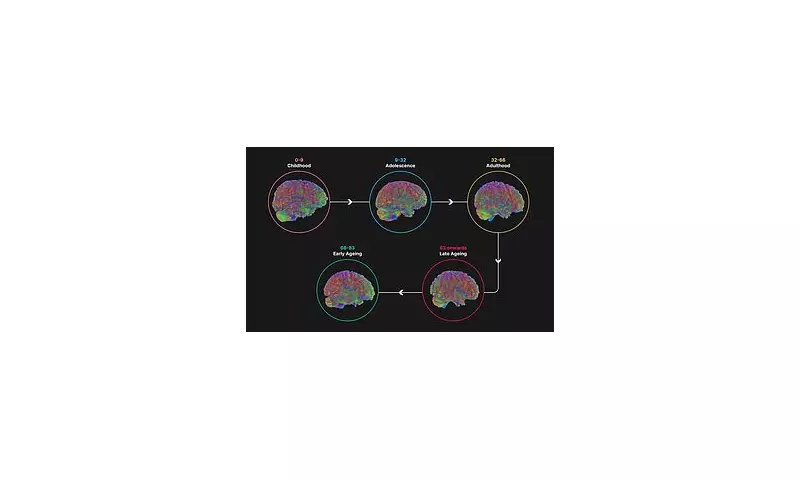
In a landmark study that redefines our understanding of human development, researchers from the University of Cambridge have identified five distinct stages of brain maturation that span our entire lives.
The comprehensive analysis, published in Nature Communications, examined brain scans from 3,802 individuals aged between 0 and 90, revealing four pivotal turning points that separate these key epochs of neurological development.
The Five Epochs of Your Brain
According to the research team, our brains progress through five clearly defined phases: childhood, adolescence, adulthood, early ageing, and late ageing. The most surprising finding challenges conventional wisdom about when we truly become adults.
The adolescent period, scientists now confirm, extends until approximately age 32, meaning those in their late 20s and early 30s who don't feel like fully-formed adults are biologically correct in their perception.
'The brain goes through a natural transition around the time puberty begins, which extends until the early 30s,' lead researcher Dr Alexa Mousley told the Daily Mail. 'This age window exceeds what many consider "adolescence".'
Mapping the Brain's Evolution
The Cambridge team utilised a sophisticated brain imaging technique called MRI diffusion scanning, which tracks how water molecules move through brain tissue to map neural connections.
By compiling thousands of these scans, they constructed a detailed picture of how our brain's wiring evolves throughout our lifetime. The research indicates it takes nearly three decades of continuous rewiring before our brains reach their adult form.
The five identified stages are:
- Childhood (0-9 years): Characterised by rapid 'network consolidation' where excess neural connections are pruned away, leaving only the most active pathways. Both grey and white matter expand significantly during this period.
- Adolescence (9-32 years): The brain becomes increasingly organised and efficient, with strengthened connections both within specific regions and across the brain as a whole, leading to enhanced cognitive performance.
- Adulthood (32-66 years): Brain architecture stabilises, and researchers note a 'plateau in intelligence and personality' during this longest of the brain's eras.
- Early Ageing (66-83 years): Marked by gradual reduction in connectivity and degradation of white matter, though this transition is described as the mildest of the turning points.
- Late Ageing (83+ years): Characterised by a more dramatic decline in whole-brain connectivity, with increased reliance on specific regions as broader connections weaken.
Implications for Mental Health and Ageing
The extended adolescent period identified by the research coincides with a marked increase in the prevalence of mental health disorders, suggesting a potential neurological basis for this pattern.
'Many neurodevelopmental, mental health and neurological conditions are linked to the way the brain is wired,' explained senior author Professor Duncan Astle. 'Indeed, differences in brain wiring predict difficulties with attention, language, memory, and a whole host of different behaviours.'
The researchers emphasise that more investigation is needed to understand the exact mechanisms behind these connections.
For the ageing brain, Dr Mousley offers an analogy: 'Imagine you normally take one bus to get to work. If that bus route shuts down, you might need to take two buses instead. Suddenly, the stop where you transfer between buses becomes much more important.'
She suggests that as some brain connections weaken with age, other regions may become more crucial for communication, representing the brain's adaptive response to neurological changes.
This groundbreaking research provides the most comprehensive timeline of human brain development to date, offering new insights into everything from educational approaches to elderly care and mental health treatment throughout the human lifespan.






